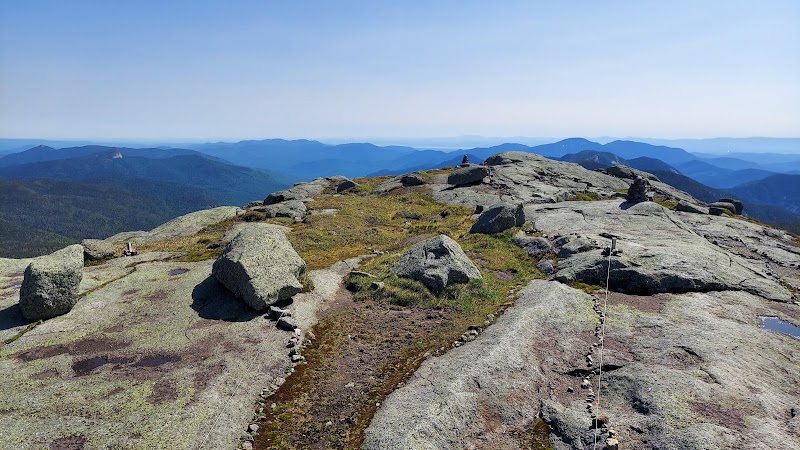
Conquering Adirondack Heights: Panoramic Summits from Keene Valley, NY
The Adirondack peaks around Keene Valley offer hikers breathtaking panoramas paired with rugged terrain that challenges and inspires. From forested trails to exposed summits, this adventure balances exhilaration with practical preparation for an unforgettable New York mountain experience.
Start Early to Beat Crowds and Weather
Begin your hike in the early morning to avoid busy trails and afternoon storms common in the Adirondacks, ensuring a safer and more peaceful ascent.
Hydration is Non-negotiable
Carry at least two liters of water per person; Adirondack trails demand steady hydration especially in warm months or during strenuous climbs.
Wear Sturdy, Grip-Focused Footwear
Choose hiking boots with solid ankle support and aggressive tread to handle varying terrain—from rooted forest floors to loose rocks on exposed ledges.
Pack a Map or GPS
The Adirondack trail network near Keene Valley can be confusing—keep a printed map or GPS device handy to avoid wrong turns at crucial junctions.
Conquering Adirondack Heights: Panoramic Summits from Keene Valley, NY
To stand atop the soaring peaks of the Adirondacks near Keene Valley is to engage with a landscape fiercely itself—raw elevation thrust against sky, rock faces daring your every step. The hikes here are challenging but accessible, weaving through dense forests that breathe underfoot and push upward to ridgelines that open like natural balconies. These peaks, including the iconic Cascade Mountain and Giant Mountain, rise sharply between 3,000 to over 4,000 feet, giving you roughly 1,400 to 2,500 feet of vertical climb depending on the route. The terrain shifts from firm roots and moss-covered rocks to stretches of loose scree and exposed ledges, testing your footing and focus.
Starting from trailheads just minutes outside Keene Valley, the paths demand steady pacing—both legs and lungs must find their rhythm as the forest canopy gradually thins and the world stretches wider. At summit, the 360-degree views reward every strained breath: valleys dipping into deep greens, mountain ridges folding into distant blues, and the quiet ripple of lakes reflecting the vast sky. Be ready for sudden gusts that sweep the ridges, nature’s reminder that these peaks live and move beyond human presence.
Preparation is practical: bring full hiking boots with solid tread, layered clothing to adjust to swift temperature shifts, and at least two liters of water per person. Start early to avoid afternoon weather changes and crowds, and pack a detailed map or use a GPS-enabled device since some junctions can mislead the unwary. Let the soil, trees, and stones guide your pace as you respect the mountain’s steadfast grip.
In all, climbing the Adirondack peaks around Keene Valley offers more than exercise; it’s a conversation with wildness that rewards curiosity and preparedness in equal measure. This is not just a climb, but an invitation to walk alongside nature’s raw architecture, framed by panoramic views you’ll carry far beyond your descent.
Nearby Trips
All Adventures
Boat Charters
Water Activities
Adventures near Keene Valley, New York
Discover the unique and memorable adventures that make Keene Valley, New York special.
Frequently Asked Questions
What is the best peak to hike near Keene Valley for panoramic views?
Cascade Mountain is a popular choice for first-timers due to its relatively moderate climb and stunning 360-degree views from the summit, including the High Peaks region.
Are dogs allowed on the Adirondack trails around Keene Valley?
Yes, dogs are permitted on most trails but must be kept on a leash to protect local wildlife and other hikers.
How difficult are these Adirondack hikes for beginners?
Many peaks near Keene Valley offer moderate hikes suitable for experienced beginners with good fitness, but some require scrambling and stamina, so preparation is key.
When is the best time to avoid crowds on these trails?
Weekdays early in the morning during spring and fall tend to have fewer hikers, offering a more solitary experience.
Are there facilities or water sources along the trails?
Facilities are limited on the trails. Carry sufficient water, as natural sources may be seasonal or require treatment.
What safety considerations should I keep in mind?
Be prepared for rapidly changing weather, maintain a steady pace, watch footing carefully on rocky or slippery sections, and inform someone of your itinerary.
Recommended Gear
Hiking Boots
Provide ankle support and traction essential for uneven and rocky Adirondack terrain.
Layered Clothing
Allows quick adaptation to temperature swings common on mountain ridges and in changing weather.
Water Reservoir or Bottles
Keeps you hydrated throughout intense climbs; summer heat demands extra water.
Map and Compass or GPS Device
Crucial for route finding and safety on the sometimes confusing trail network.
Local Insights
Hidden Gems
- "The Fire Tower on Whiteface Mountain offers unmatched views and a historical glimpse into forest conservation."
- "Lower Cascade Lake near the Cascade Mountain trailhead is a serene spot for a quiet break."
- "The Chapel Pond area provides a peaceful alternative route with fewer hikers."
- "Look for viewpoints along the Herbert Brook Trail for quiet streams and waterfalls."
Wildlife
- "White-tailed deer frequently graze near forest edges."
- "Black bears roam the region, mostly shy but worth respecting with proper precautions."
- "Seasonal birdwatching opportunities include hawks, ravens, and the elusive spruce grouse."
- "Rivers and streams host native brook trout, visible in clear water sections."
History
"Keene Valley has a legacy tied to Adirondack lumbering and conservation movements, including early fire lookout towers that shaped forest management in the region."
